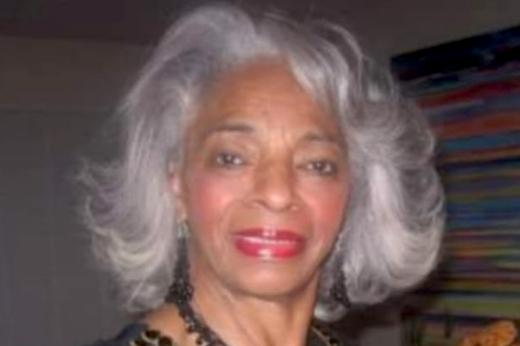An Old Dominion University assistant professor will spend the summer researching women's anti-slavery movements for a new book, thanks to a National Endowment for the Humanities award.
Ruth Osorio, who teaches women's studies and English, received a $6,000 summer stipend for her book, "Am I Not a Sister?: U.S. Women's Abolitionist Literacies in the 19th Century." The project continues her research into the ways 19th-century white and Black women abolitionists learned to collaborate.
She plans to travel to Historical Society of Pennsylvania in Philadelphia to research women's anti-slavery groups, including the Philadelphia Female Anti-Slavery Society. In the mid-1800s, the needs of Black women and children were often separate from white women, but some anti-slavery societies of the time, like the Philadelphia society, were racially integrated.
"I want to read the meeting minutes, the processes, the deliberations and find out how they made decisions at the time," Osorio said. "I also think it's important not to romanticize the collaboration between Black and white women. My goal is to learn about the risks, challenges and labor of these women."
Some of the stories she's uncovered in her initial research show the existence of strong collaborations and have made Osorio excited about the summer trip. One in particular shows the solidarity of the women involved, she said.
"The Philadelphia Female Anti-Slavery Society was having a convention in the city, and an angry mob was growing outside while Angelina Grimké was giving her speech," Osorio said. "You can see in the notes from the meeting how she was responding to the threat of violence throughout her talk. When it was time to leave, the Black and white women linked arms and left together for safety. Later, the mob burned the hall down.
"These stories of solidarity do exist, and I want to uncover the real stories behind it and find out what it does look like in terms of the writing and reading they produced."
Along with meeting notes, the societies created quilts and published in newsletters, all at a time when interracial cooperation was not often accepted and even illegal, and years before women had the right to vote in the United States.
The work can also provide context for today's anti-racism and feminist work, Osorio said.
"It was not all done perfectly across racial lines, but if we can go back and look to understand how this work has been done in the past, we can develop more anti-racist practices for today," she said.
Elizabeth Groeneveld, associate professor and chair of the Department of Women's Studies, agreed.
"Dr. Osorio's research not only enriches the existing scholarship on 19th-century abolitionist activism," Groeneveld said. "Her work provides a historical model of how women built coalitions across racial differences - a conversation that is just as relevant today as it was in then."
Related News Stories
President Hemphill, JLab Director Stuart Henderson make Inside Business’ Annual Power List
The publication’s recognition is designed to “showcase who’s who in terms of moving the needle for the economy in Hampton Roads.” (More)
ODU Celebrates Cecelia Tucker’s 30-Year Commitment to Community
Over her years at the University, she’s championed diversity and built bridges throughout the region. (More)
Computer Modeling Is at the Heart of Willy Wriggers' Research
The engineering professor develops 3D computer modeling techniques to help scientists refine and reconstruct electron microscopy images. (More)






